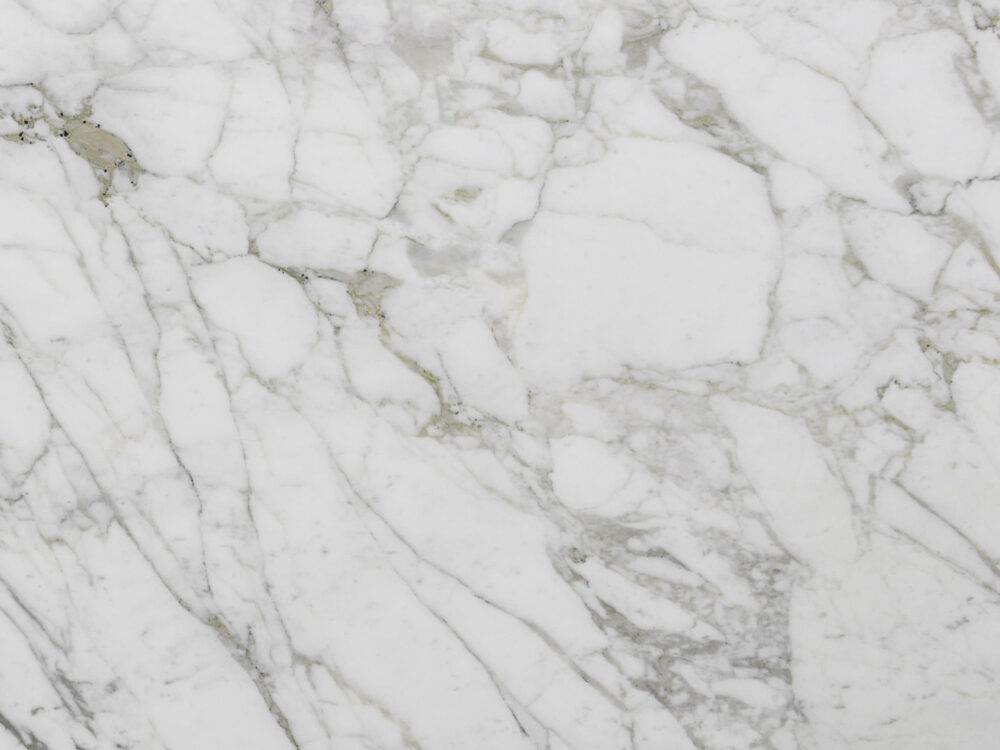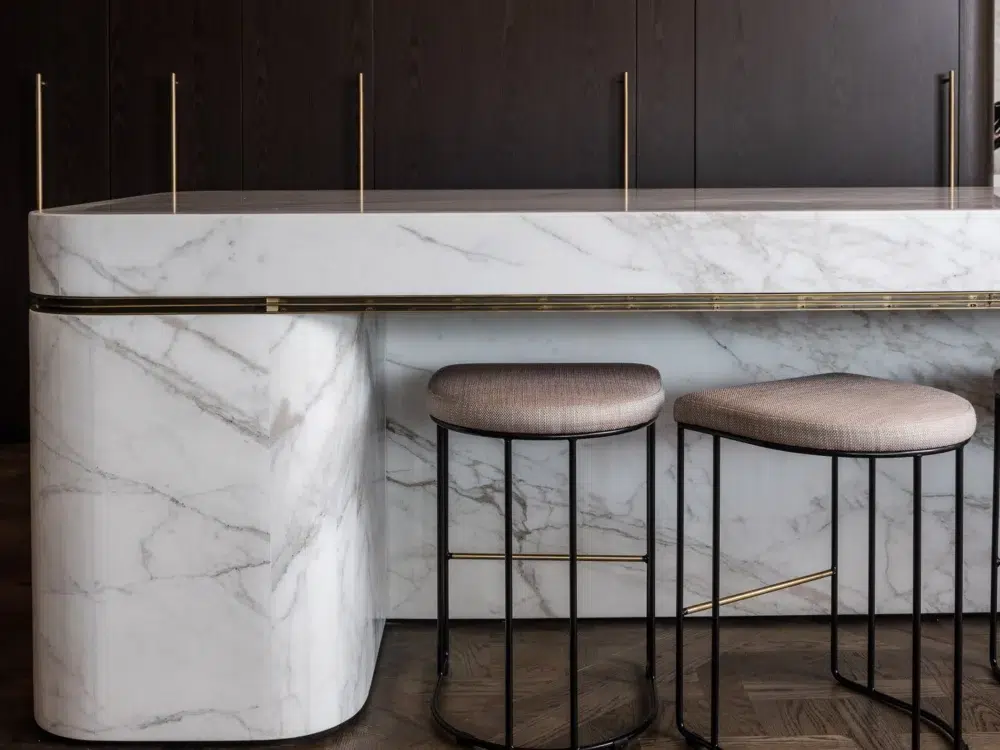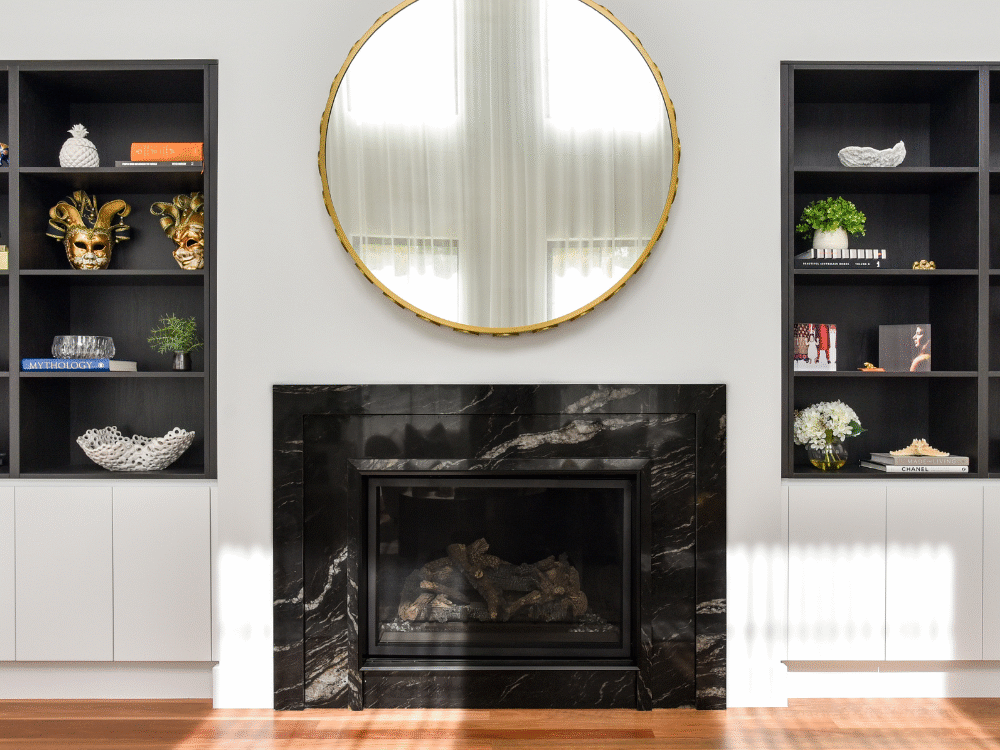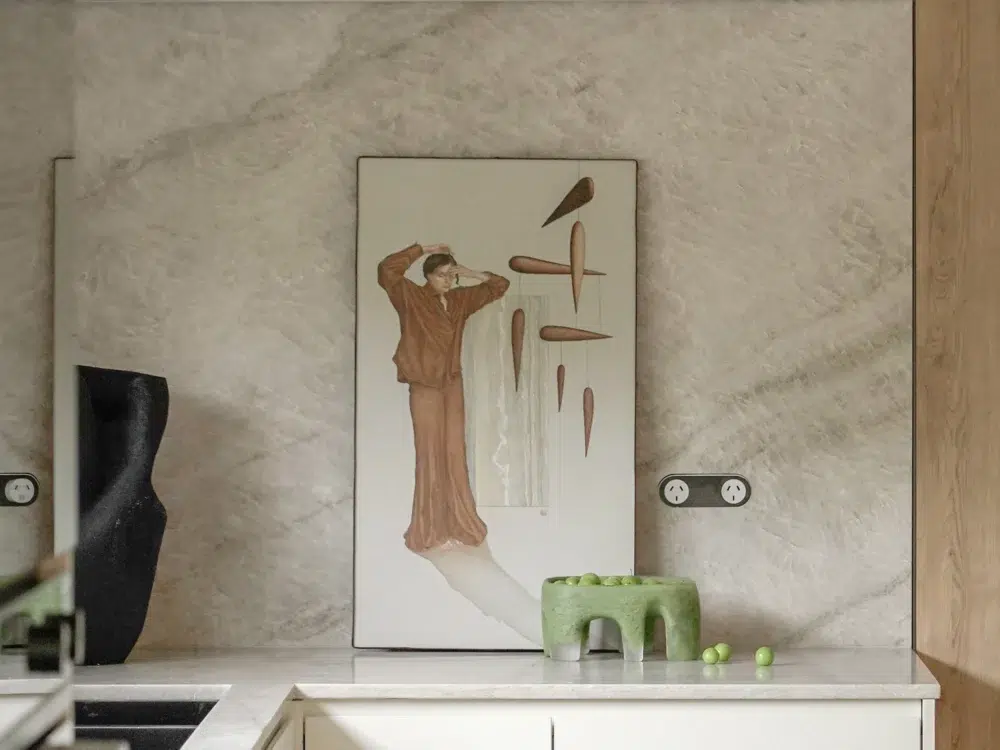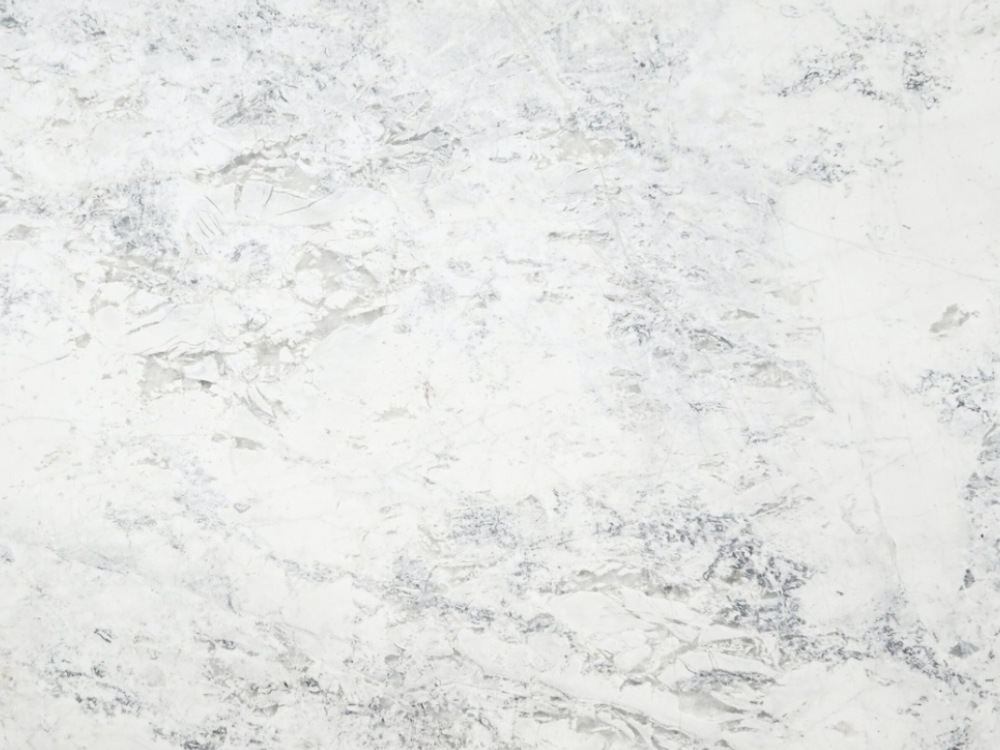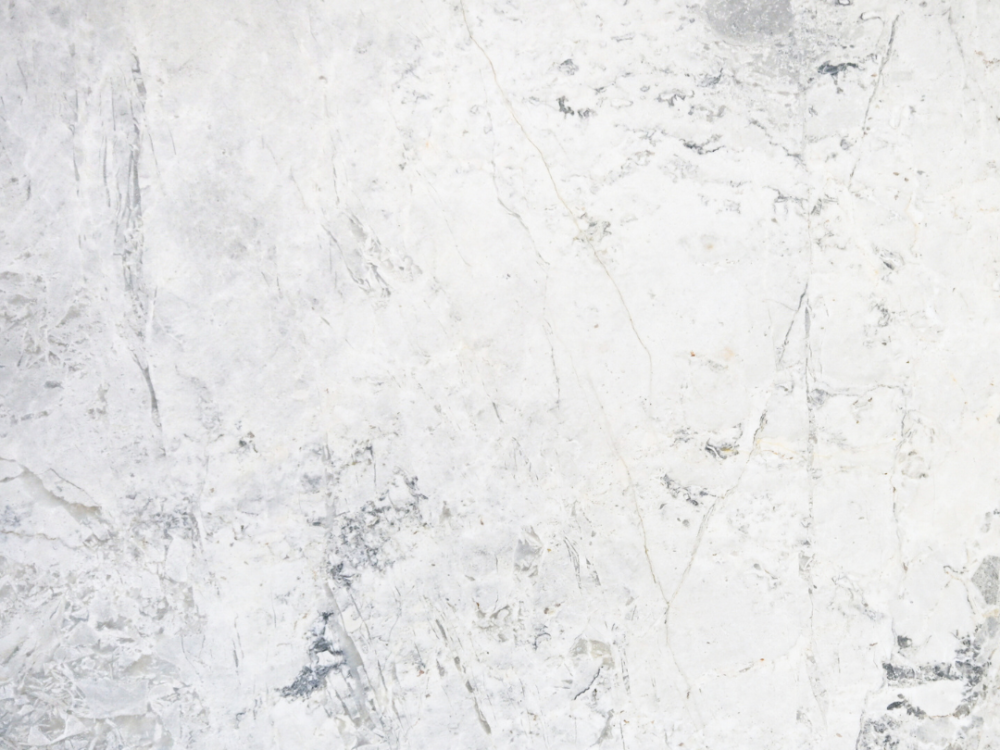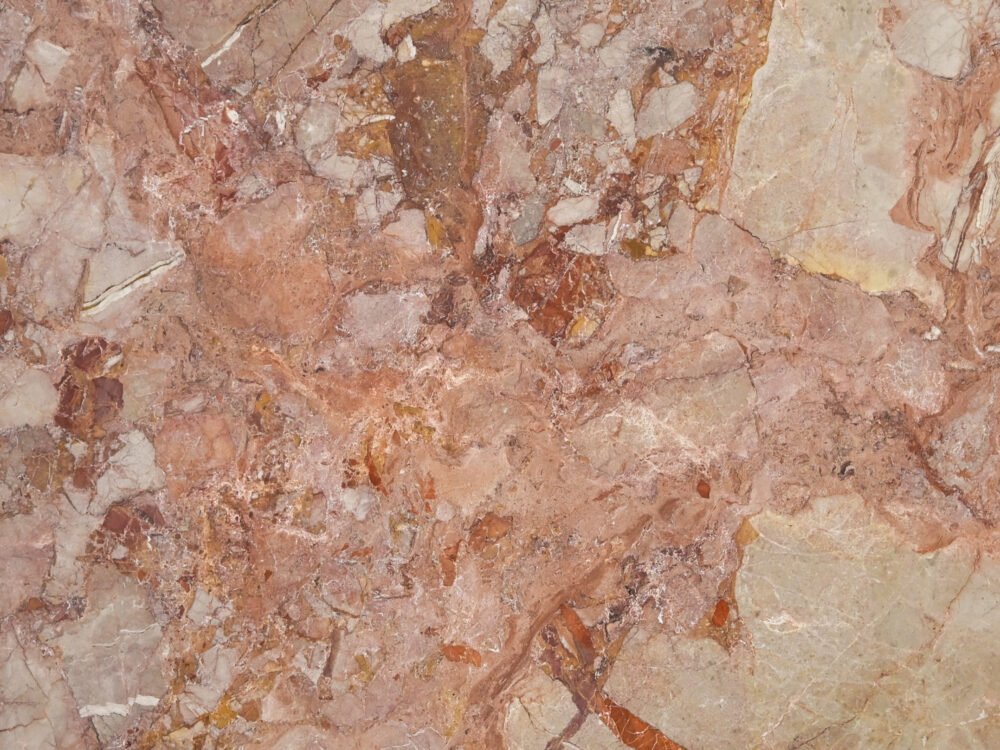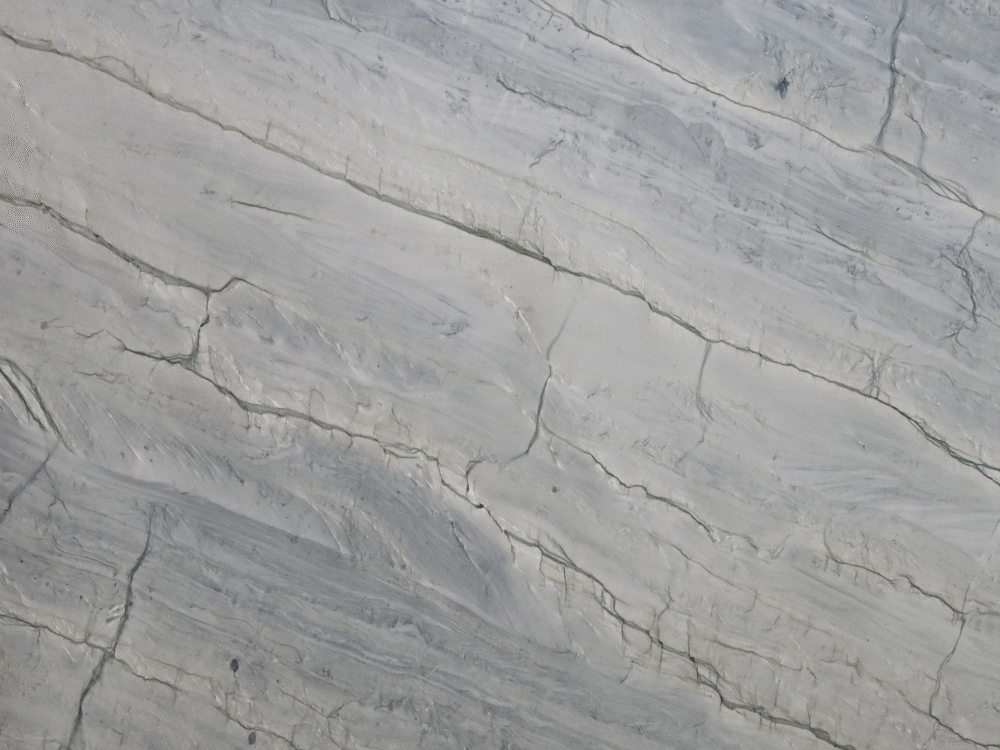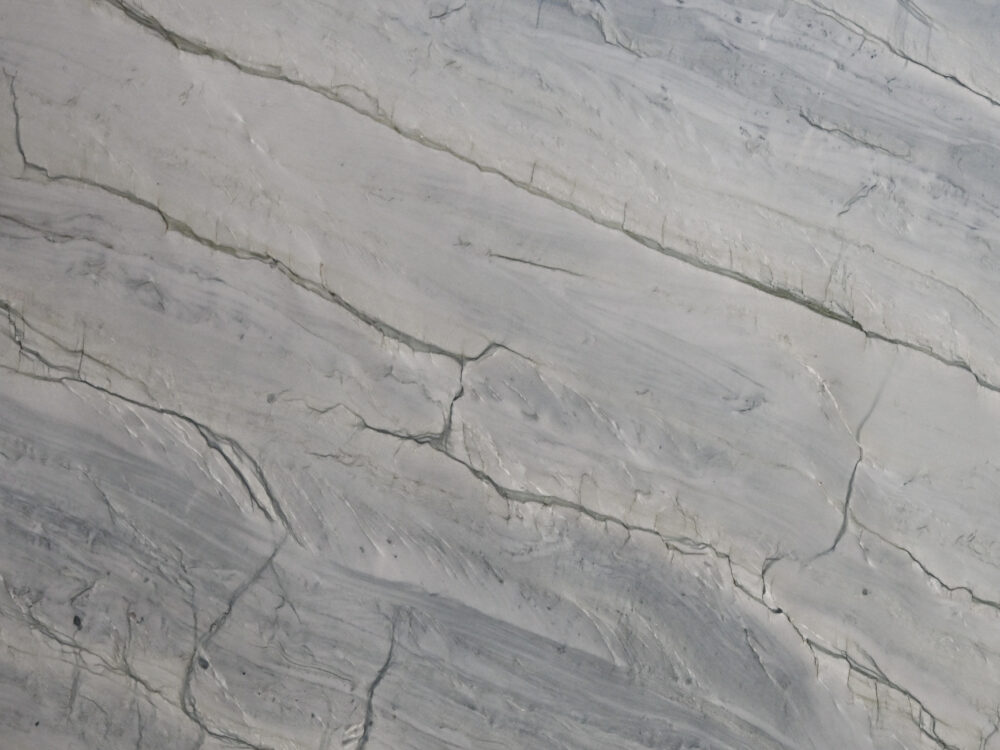Stone Benchtop
Natural Stone Kitchen Benchtops
Transform your Sydney kitchen with premium stone benchtops that combine timeless beauty with exceptional durability. Natural stone offers heat resistant surfaces that handle the demands of daily cooking while adding genuine character to your home. Each slab is unique, formed over millions of years, bringing one-of-a-kind elegance to your kitchen. With over 20 years of experience, Avant Stone guides you through selection – helping you choose heat resistant stone that looks stunning and works for how you live.
Our Stone Benchtops Range
Different Types of Natural Stone Benchtops
Not all natural stone is created equal. Understanding the unique characteristics of each stone type – including heat resistance, durability, and maintenance – helps you choose kitchen benchtops that match both your aesthetic vision and practical needs in Sydney homes.
-
Calacatta Oro Marble
Calacatta Oro Marble is among the most sought-after marbles in the world. This Marble is quarried in the Carrara mountain ranges of central Italy. The pristine white background of this marble is contrasted with the bold warm grey veining. Calacatta Oro is one of the classic Italian white Marble, having been used on high-end luxury developments for centuries. The timeless nature of the color palette & magnificence of this stone leaves it as one of the most prized marbles in the Avant Stone range.
-
Calacatta Vagli Marble
Calacatta Vagli Marble is a luxurious natural stone sourced from the Carrara Mountain ranges of Italy. Characterised by its warm white background and soft earthy-gold veining, this marble brings timeless Italian elegance to any space.
What sets Calacatta Vagli apart is its distinctive brecciated pattern — fragmented and artistic, almost like nature’s own brushwork. This versatility makes it equally stunning in large format applications such as kitchen islands and feature walls, or in smaller segments like shower niches and fireplace hearths.
The warm gold undertones pair beautifully with timber cabinetry, brass fixtures, and natural materials, making it a favourite among Sydney interior designers seeking sophistication without coldness.
- Finish: Honed
- Origin: Carrara, Italy
- Best for: Kitchen benchtops, feature walls, bathroom vanities, fireplace surrounds
Like all marble, Calacatta Vagli requires regular sealing and prompt spill cleanup to maintain its beauty.
Visit our Sydney or Newcastle showroom to see available Calacatta Vagli slabs in person.
-
Verde Alpi Marble
Verde Alpi Marble is a luxurious emerald green stone sourced from Italian quarries, featuring rich hues of white and dark green throughout. A long-time favourite among interior designers, this marble brings unmatched opulence and vibrancy to any application.
The captivating colours and brecciated veining create a mesmerising effect – like an aerial view of a swirling ocean. Each slab is a natural work of art, with patterns that shift and flow in ways no engineered material can replicate.
Verde Alpi is a statement stone. It demands attention and transforms ordinary spaces into extraordinary ones. Whether used as a feature wall, kitchen island, or bathroom vanity, this marble becomes the centrepiece of any room.
Origin: Italy
Colour Palette: Emerald green, white, dark green
Pattern: Brecciated (fragmented, artistic movement)
Best For: Feature walls, statement benchtops, bathroom vanities, fireplace surrounds, luxury commercial fitouts
As with all marble, Verde Alpi requires regular sealing and careful maintenance. Avoid acidic substances and wipe spills promptly to preserve its stunning finish.
-
Rosa Noir Marble
Rosa Noir Marble is romance and drama in perfect balance. Soft pink hues provide a feminine foundation, while bold black brecciated veining creates striking contrast that commands attention. Subtle green accents add unexpected depth, resulting in a colour palette that feels both sophisticated and daring.
The name says it all, “Rosa Noir” translates to “Black Rose,” and like its namesake, this marble embodies beauty with an edge. The brecciated pattern creates a mosaic-like appearance where pink fragments are dramatically bound by dark veining, making each slab a unique natural artwork.
What makes Rosa Noir so captivating is its ability to bring warmth and drama simultaneously. The soft pink tones prevent it from feeling cold or harsh, while the bold black veining ensures it never reads as overly sweet or delicate. It’s a stone with genuine personality, confident, unique, and unforgettable.
Best For: Feature walls, statement benchtops, bathroom vanities, fireplace surrounds, luxury flooring, accent walls.
Rosa Noir pairs beautifully with matte black tapware, brushed brass or rose gold fixtures, deep charcoal cabinetry, and blush or emerald accents. It creates stunning contrast against crisp white joinery or complements warm timber for a more organic feel.
-
Indian Jet Black Granite
Indian Jet Black Granite, the deep dark stone with a magnificent polish. A timelessly classic Granite that will never look anything less than stunning due to its ultimate durability. Whether you want a traditional or modern look, Indian Jet Black Granite is one of the most versatile Granite options and you will certainly be able to create your desired look with this beautiful natural stone.
Read More
Black Granite Slabs are one of the most often utilized natural stones by property owners globally. Indian Jet Black Granite, with its natural black beauty and elegance, is at the forefront of the trend. In natural stones, Granite is renowned for its unparalleled toughness, durability, and beauty. Indian Jet Black Granite is a pitch-black background that exudes elegance and high-end style.
Why Choose Indian Jet Black Granite?
The aesthetics generated by incorporating Indian Jet Black Granite into your home décor or exteriors stand out like a sore thumb. This dark stone tends to make a modern, distinctive, and luxury design statement.
A large number of homeowners utilize this sophisticated Black Granite Slab in their kitchens and bathrooms to create a stunning impression. Even if you’re merely remodeling your kitchen, Indian Jet Black Granite may give it a unique flair. Another good reason to select Black Granite for a makeover is that it goes well with any color or texture of design components such as flooring, cabinets, and sink. Black is the most versatile color, blending well with a wide range of other hues. The black color complements other colors in your kitchen or bathroom decor. However, when paired with white or lighter islands and cabinets, The Indian Jet Black Granite creates a stunning visual contrast.
When it comes to Granite Slabs or tiles, the color and texture consistency given to any business or residential area is stunning. As a result, Indian Jet Black Granite may be utilized in various indoor and outdoor applications, depending on the individual’s preferences.
The polished surface of the Granite reflects the brilliance and emanates a sense of sumptuousness when used in a place illuminated by sunshine. The stone is a versatile material that you can use to create beautiful worktops, flooring, exterior cladding, and architectural elements.
Where Can You Use Indian Jet Black Granite?
Black Granite has the same or (in some circumstances) superior characteristics as other granite varieties. The stone is water and heat-resistant, and it requires very little upkeep. It may be readily sanitized by just wiping it down with soapy water. As a result, the stone can endure the test of time, even in subzero conditions.Bathroom
Indian Jet Black Granite would be the ideal choice for bathrooms. The stone is an excellent choice for bathrooms because it offers a prominent depth and a sense of refinement. Unfortunately, water, heat, and the humid atmosphere are all resistant to the stone.Kitchen Benchtops
Black Granite is a wise choice for a long-lasting and durable Benchtop that will look the same for years. A glossy black countertop gleams like a mirror, reflecting everything in its vicinity. Indian Jet Black Granite complements wood cabinets and light-colored design components beautifully. Another fantastic design concept is to pair the stone with stainless steel accents in the kitchen. The mix of steel grey and black gives it a classy look.Bar Tops
The stone is a fantastic material for customizing countertops and bar tops. In addition, because Granite is heat and scratch-resistant, Indian Jet Black Granite can be used in laundry rooms and kitchens as countertops. -
Titanium Granite
Titanium Granite is a striking dark Granite with strong movement and patterning. Titanium Granite is known for its irregular sized white and gold crystallisations throughout the stone against an intense black background. Titanium Granite is bursting with elegant movement and will most definitely make a statement in any chosen space. Titanium Granite is stylish and durable, making it the perfect natural stone for exterior and interior applications.
Read More
If you want to give your kitchen or bathroom a vivid, elegant, or modern look, Titanium Granite Slabs could be just what you’re searching for. This stone naturally resembles the Galaxy but with milky white and gold moving throughout the stone, like satin against an intense black piece. The application of Titanium Granite is unrivaled.
Most homeowners are unaware that the benchtops they choose may make or break the overall appearance of the space. The choice of your benchtops has a significant impact on the value and usefulness of your kitchen or bathroom. This stone has long been a popular choice for countertops, but it’s also used in various other applications.
Flooring
Black flooring gives every room a sense of depth and intensity. Titanium Granite tiles or slabs on the flooring will enhance the aesthetics while providing the area a traditional appeal. Stone specialists recommend Black Granite Floor Tiles for spaces with lots of natural light.Accent Walls
Without any effort, just using Titanium Granite on accent walls may give even the most basic home décor a wow factor. This stone can be utilized as a feature wall in bathrooms or behind a shower or a bathtub. It may also be used as a backdrop for walls in living rooms or kitchens.Outdoor Cladding
Titanium Granite will be a unique choice for wall cladding because it catches the light and reflects it brilliantly. It’s also a better choice than other stones since it can withstand sunshine, dust, and water without losing its quality or appearance.Why Choose Titanium Granite?
The flexibility of Granite is one of the significant reasons for its popularity. In addition, titanium Granite Countertops may help homeowners establish various interior design themes by tying the whole appearance of their kitchen or bathroom together. So, whether you’re going for a modern look, a more traditional look, or even a vintage look for these areas, the gorgeous aesthetic of Titanium Granite Benchtops is sure to match with whichever designs you have in mind.Besides the versatility of Titanium Granite, the stone is a magnificent choice for high-traffic applications such as kitchens. They’re tough, long-lasting, and resistant. Granite is produced as an igneous rock under tremendous temperatures and pressure, resulting in an extremely durable material, heat and fire-resistant.
One more advantage of Black Granite Countertops is that they don’t require much cleaning as lighter-toned table top materials. As you might expect, the surface does an excellent job of concealing darker stains. Without a doubt, this makes Black Granite the ideal benchtop material for homeowners seeking a long-lasting and profitable investment to enhance their space’s aesthetic appeal, practicality, and it’s a lot easier to keep up with.For these three reasons and more, Titanium Granite Countertops are a classic choice for your kitchen or bathroom. First, they’re made of natural stone, which is a very trendy feature among new homeowners these days. It is due to the material’s inherent beauty and distinctive appearance and its unrivaled strength and longevity. Second, black is a timeless color that will never go out of style, regardless of the trends that come and go throughout the years. So go ahead and contact us, Avant Stone, to buy this gorgeous stone.
-
Copacabana Granite
Copacabana Granite is a captivating natural stone that features thick black vein swirls against an ivory background, creating a busy yet visually stunning pattern. Its distinctive aesthetic adds drama, energy, and a sense of dynamism to any interior space. Despite its busy appearance, Copacabana Granite maintains a natural allure, making it a versatile choice for interior designs that seek to make a bold and captivating statement
-
Colonial White Granite
Colonial White Granite is a beautiful speckled natural stone. Characterised by its cream, white and burgundy spots, Colonial White is consistent with a subtle amount of character. The natural stone combines beautifully with different finishes, materials, and colour palettes. Offering seamless blends with lighter colours and an alluring contrast with darker colours..
-
Atlantis Quartzite
Atlantis Quartzite is a durable, earthy tone stone from South America. The neutral grey background has dark angular veins through. Due to the stone’s quartzite composition Atlantis Quartzite is a durable and dynamic stone perfect for use in high use areas such as kitchen workbenches.
-
Taj Mahal Quartzite
Taj Mahal Quartzite is a stunning natural stone, perfect for those who want to add an elegant and sophisticated touch to their spaces. With its distinctive beige backdrop and gentle veins of grey and orange, it mimics the look of marble while offering the durability of quartzite. Ideal for countertops, backsplashes, and floors, it’s a versatile choice that combines beauty and functionality.
Key Benefits of Taj Mahal Quartzite
- Durable: Scratch and heat resistant, ideal for high-use areas like kitchens.
- Timeless Design: Subtle tones and elegant veining add class to any space.
- Versatile: Perfect for benchtops, backsplashes, and flooring.
-
Emerante Quartzite
Emerante Quartzite is an alluring natural stone. Known for its captivating emerald green background littered with dark contrasting veining. Due to its composition as a Quartzite, Emerante Quartzite is a durable and dense natural stone. Perfect for kitchen islands, benchtops, feature walls and bathrooms. Emerante Quartzite will add exquisite natural beauty to any application. Available in a polished finish.
-
Infinity White Quartzite
The grey background of Infinity White Quartzite serves as a neutral canvas, allowing the dark angular veining to take center stage. This versatile color choice seamlessly integrates with a variety of interior styles, from contemporary to traditional, adding a touch of timeless beauty and sophistication to the space.
-
Arabescato Rosalia Porcelain
Arabescato Rosalia Porcelain captivates with its striking interplay of colours and textures; blending a white base with brecciated veins in rich red and burgundy tones, accented by delicate touches of grey and green. Durable and versatile, Arabescato Rosalia is ideal for residential and commercial spaces.
-
Amalfi White Porcelain
Amalfi White Porcelain showcases a luminous white surface accentuated by bold, flowing grey veining, a refined yet statement-making design that captures the timeless elegance of classic Italian marble. Named to evoke the stunning coastal beauty of Italy’s Amalfi Coast, this porcelain slab brings Mediterranean sophistication to Australian homes.
The visual impact is striking yet versatile. The crisp white background provides a bright, open foundation, while the bold grey veins flow across the surface with natural movement and energy. It’s the kind of elegant contrast that transforms ordinary spaces into something extraordinary, whether you’re creating a sleek modern kitchen or a classic bathroom retreat.
What makes Amalfi White particularly appealing is its ability to deliver the coveted Statuario marble aesthetic without any of marble’s demanding maintenance. As a porcelain slab, it offers complete resistance to staining, scratching, heat, and chemicals, with no sealing required ever. Spills that would panic natural marble owners simply wipe away.
Best For: Kitchen benchtops, bathroom vanities, splashbacks, feature walls, flooring, commercial applications
Amalfi White pairs beautifully with virtually any design scheme. It complements sleek charcoal cabinetry for contemporary drama, crisp white joinery for seamless elegance, or warm timber for organic balance. Chrome, brushed nickel, and matte black fixtures all work beautifully.
-
Antalya Porcelain
Antalya Porcelain, an exquisite blend of subtle grey tones and intricate natural patterns. Its cloudy veining and textured surface create a sophisticated and serene ambiance, making it perfect for both modern and classic interiors. Elevate your space with Antalya’s timeless beauty and captivating appearance. Ideal for flooring, wall cladding, and countertops.
-
Antique White Porcelain
Supreme Evo Antique White is a stunning pattern of warm gold veining on a white background reminiscent of the famous Calacatta Oro Marble of Carrara Italy. Antique White porcelain slab brings a warm ambience to any space and is available in 3 distinct patterns.
The Supreme Evo Antique White is an Italian Porcelain Slab manufactured by Flaviker. The Supreme Evo Antique White is the ideal contemporary surface for a range of interior and exterior applications, available in a Honed and Gloss finish
-
Flinders White Dolomite
Flinders White Dolomite features a refined ivory-white base layered with balanced grey veining that moves softly across the surface. Cool in tone and quietly expressive, the stone delivers depth without overpowering a space, making it ideal for contemporary and architectural interiors.
-
Saint Tropez Dolomite
Saint Tropez is nestled within the earth’s embrace, emanates timeless elegance with its harmonious blend of gentle greys, soft whites, and subtle warmth of darker shades of grey. Delicate veins gracefully meander across its surface, whispering ancient stories etched in stone. Yet, it’s the accents of lightest, warmest blues that truly captivate, tracing the stone’s contours with ethereal grace, infusing it with tranquil movement and celestial allure. Each glance unveils new nuances, revealing the intertwined secrets of earth and sky, a masterpiece of nature waiting to adorn any space with its timeless grace and charm.
-
Arabescato Rosso Dolomite
Arabescato Rosso Dolomite unveils its intricate complexity upon closer inspection. Harmoniously blending large white elements with veins of deep red and grey, this stone exudes a captivating balance. The natural interplay of tensions within its surface effortlessly captures the eye, while its Leather finish enhances both its visual allure and tactile appeal, creating a seamless fusion of texture and aesthetics.
-
Altus Dolomite
The Altus Dolomite seamlessly blends timeless hues with captivating patterns. Its pristine white and grey tones complement a wide range of modern designs, whether bold or understated. The Leathered finish adds a tactile dimension, enhancing the stone’s inherent natural blemishes. In any space, the Altus Dolomite radiates as a natural beauty, effortlessly enhancing its surroundings.
Marble Benchtop
Quartzite Benchtop
Granite Benchtop
Porcelain Benchtop
Dolomite Benchtops
What Colors Are Available in Benchtops
-
Calacatta Oro Marble
Calacatta Oro Marble is among the most sought-after marbles in the world. This Marble is quarried in the Carrara mountain ranges of central Italy. The pristine white background of this marble is contrasted with the bold warm grey veining. Calacatta Oro is one of the classic Italian white Marble, having been used on high-end luxury developments for centuries. The timeless nature of the color palette & magnificence of this stone leaves it as one of the most prized marbles in the Avant Stone range.
-
Calacatta Statuario Marble
Calacatta Statuario marble, a distinctive material that personifies grace and elegance. Hand-selected from the choicest quarries of Italy, this exquisite marble, available at Avant Stone, is highly sought after by discerning homeowners, architects, and designers alike. The Calacatta Statuario marble is renowned for its crisp white background adorned with striking broad grey veins, an unparalleled blend of purity and drama that promises to transform any space into a vision of refined grandeur. Each slab is unique, embodying a timeless beauty that transcends the ephemeral trends, thus offering a sense of permanence and enduring appeal. Known for its exceptional versatility, the Calacatta Statuario marble is ideal for kitchens, bathrooms, fireplaces, and even accent walls, elegantly enhancing the ambiance of any setting with its remarkable aesthetic and superior quality. Despite its luxe appeal, the Calacatta Statuario marble is incredibly robust, balancing both functionality and aesthetics with effortless ease.
-
Carrara Extra Marble
Carrara Extra Marble, a bright white marble that will bring a light, open feel to any application. A natural stone quarried in the famous Carrara Mountain ranges of Italy, it has been used extensively throughout famous monuments such as the Duomo in Florence. The extra in Carrara Extra Marble denotes the premium selection of this stone which has minimal veining and crisp white background. Carrara Extra Marble is the go-to White Marble choice for design professionals & homeowners due to its robustness.
-
Mont Blanc Quartzite
Mont Blanc Quartzite is perennial favourite of the Avant Stone natural stone range. Mont Blanc Quartzite is a perfect natural stone with its elegant marble like appearance but the wonderful durability of a Quartzite. Accented with soft grey and warm tan veining against the creamy white background, Mont Blanc Quartzite is ideal for benchtops, walls, and floors. The warm tone throughout the stone makes Mont Blanc Quartzite a fantastic match with timber finishes. Mont Blanc Quartzite slabs are also suitable in a book-matched application due to their angular veining.
-
Omega Black Quartzite
Omega Black Quartzite is a favourite among those seeking a dark coloured stone. The black background with the contrasting warm brown and white veining throughout give this natural stone a movement of its own. Not only is Omega Black Quartzite ideal for modern spaces, but it is also versatile & durable. This stone is often utilised in a leather finish, due to its unique properties which result in a deeply textured finish.
-
Lloret Marble
Lloret Marble is a symphony of charcoal, grey and white tones with heavy movement but a uniform structure. This wonderfully versatile marble is appealing both in residential setting but also in commercial setting due to its sophisticated yet appealing appearance. Due to its continuous movement of veins throughout this stone it can be used in myriad of different applications.
-
Jurassic Black Marble
Jurassic Black, is a stone that will have you in awe with its incredible character. Jurassic Black possesses prominent grey and brown veining that protrude from the black background. Jurassic Black is the perfect stone if you are looking for sophistication, life, and movement! Perfect for feature walls and splashbacks, available in Honed, Leather, and Polished finish.
-
Constantine Granite
Constantine Granite commands attention with its deep navy background, a rich, moody blue that sets it apart from typical black or grey granites. Sharp angular veins in brown and light grey cut through the surface with purpose, creating distinctive movement that feels both natural and architectural.
Named with echoes of ancient empires, Constantine carries itself with regal authority. The unusual navy base provides depth and sophistication rarely found in granite, while the angular veining adds contemporary edge. It’s a stone that bridges classical grandeur and modern design sensibility.
What makes Constantine particularly versatile is its finish options. The leather finish adds tactile texture and a subtle, matte appearance that softens the stone’s drama for contemporary spaces. The honed finish delivers smooth sophistication with understated elegance. Both options suit the stone’s inherently bold character while adapting to different design aesthetics.
Best For: Kitchen benchtops, bathroom vanities, feature walls, bar tops, outdoor applications, commercial fitouts
Constantine pairs beautifully with warm timber cabinetry, brass or bronze fixtures, and earthy neutrals. The navy tones also work strikingly with crisp white joinery or complement coastal-inspired interiors.
-
Rosso Travertine
Rosso Travertine is a radiant standout in the world of natural stone. Its bold red hues and distinctive character make it a unique travertine choice, adding a vibrant and captivating element to your design.
-
Rosso Orobico Marble
Luxuriously hued deep red tone, Rosso Orobico Marble is distinguished by its waves of tawny sunset rose and dramatic range of white, black, burgundy, brown, red and grey tones. This uniquely patterned and richly patterned stone has been seamlessly blended by mother nature to create a bold statement masterpiece, perfect for those wishing to create an emphatic feature wall or feature kitchen island.
-
Rosso Levanto Marble
Rosso Levanto Marble is an extravagant, gorgeous natural stone with deep burgundy background with segments of black and striking white veining. Rosso Levanto Marble was used primarily in traditional design contexts, however, it has made a comeback recently as the designers seek more colorful and unique stone pieces for contemporary projects.
-
Breccia Rosso Marble
Breccia Rosso Marble is Italian drama in stone form. Intense burgundy patterning creates a bold foundation, while rich hues of pink and gold weave throughout like precious threads in an ancient tapestry. This is marble for those who dare, fast becoming a favourite among architects and interior designers seeking to make unforgettable statements.
The “breccia” in its name refers to the stone’s distinctive fragmented pattern. Deep red fragments are interspersed with contrasting white, beige, and gold veining, creating a dramatic mosaic-like appearance where each slab is a unique composition of colour and movement. Few natural stones offer this level of visual intensity.
Breccia Rosso isn’t for the faint-hearted. It demands attention and transforms ordinary spaces into extraordinary ones. Whether used as a feature wall, fireplace surround, or statement kitchen island, this marble becomes the undeniable focal point of any room—the piece guests remember long after they’ve left.
Best For: Feature walls, fireplace surrounds, statement benchtops, bathroom vanities, luxury commercial fitouts, hospitality applications.
Breccia Rosso pairs beautifully with warm timber, brass and gold fixtures, rich neutrals, and crisp white joinery. It creates stunning contrast against dark cabinetry for bold, theatrical interiors.
-
Domus Grey Marble
Domus Grey Marble is an artistic blend of cool grey tones, subtle hints of blue, and delicate veining that weaves a timeless and serene aesthetic. Its subtle cloudy background and nuanced texture make it a versatile choice, effortlessly enhancing both minimalist and eclectic design preferences.
-
Bianco Quartzite
Bianco Quartzite embodies understated elegance, an off-white toned quartzite with soft silver-grey veining that creates a timeless, refined finish from every angle. This is the stone for those who appreciate quiet sophistication over bold statements, where beauty reveals itself in subtle details rather than demanding attention.
The colour palette is beautifully neutral. A warm off-white background provides a luminous foundation, while delicate silver-grey veins drift across the surface like wisps of morning mist. Unlike heavily veined stones that dominate a space, Bianco works harmoniously with your design, enhancing without overwhelming.
What makes Bianco particularly appealing is its leather finish, a textured surface that accentuates those soft silver-grey veins while adding tactile interest and a contemporary edge. The leather finish also offers practical benefits, hiding fingerprints and water spots better than polished surfaces, making it ideal for busy households.
Best For: Kitchen benchtops, bathroom vanities, splashbacks, feature walls, islands.
Bianco pairs effortlessly with virtually any design scheme. It complements warm timber cabinetry beautifully, works equally well with sleek white joinery, and provides the perfect backdrop for statement tapware in brushed nickel, matte black, or brass.
-
Polaris Dolomite
The modern colour tones of Polaris Dolomite, with its cool grey palette, create a serene and timeless aesthetic. The subtle cloudy veining adds a touch of depth and visual interest, bringing a sense of movement and texture to the stone’s surface. Polaris Dolomite seamlessly integrates into any design scheme, whether you prefer a subdued and minimalist approach or a vibrant and eclectic style.
-
Alpina Quartzite
Defined by its cool grey tones and striking linear veining, Alpina Quartzite embodies both natural elegance and architectural strength. Its surface reflects a sense of quiet sophistication, making it ideal for contemporary and classic spaces alike. Whether featured as an island, a sleek vanity, or an expansive wall installation, Alpina Quartzite elevates interiors with its balance of durability and refined beauty.
What Colors Are Available in Benchtops
Grey Stone Benchtops
WHY CHOOSE A NATURAL STONE BENCHTOP FOR YOUR KITCHEN?
Natural Beauty That's Genuinely Unique
Every natural stone slab is a masterpiece millions of years in the making. The veining, colour variations, and natural movement in your benchtop exist nowhere else – manufactured materials simply cannot replicate this authentic character. Whether you choose dramatic Calacatta marble or subtle Mont Blanc quartzite, your kitchen becomes genuinely one-of-a-kind.
Durability That Outlasts Everything
Quality stone benchtops last decades – often 30+ years with proper care. Many Sydney homes have original stone benchtops from 50+ years ago still looking beautiful. Granite and quartzite offer exceptional scratch and heat resistance, handling the demands of busy family kitchens without showing wear.
EXCELLENT INVESTMENT POTENTIAL
Real estate agents across Sydney confirm it – homes with natural stone benchtops command higher prices and attract more buyer interest. Premium stone adds genuine value that manufactured materials simply don’t deliver. It’s an investment that pays back in both daily enjoyment and resale appeal.
HEAT RESISTANT TO FEEL ASSURED
What countertop is the most heat resistant? Natural stone excels here. Granite heat resistance is exceptional – it forms under extreme geological temperatures and easily handles hot pots directly from the cooktop. Is granite fire resistant? Yes, its igneous origins mean it won’t scorch or discolour from normal kitchen heat. Quartzite also offers excellent heat resistant surfaces, while even marble handles moderate heat well. This makes natural stone ideal heat resistant material for kitchen benchtops where cooking happens daily.
Our Stone Benchtop Process
Visit Our Showroom
This step is essential – photos don’t capture stone’s true depth, sparkle, or how lighting affects it. Our Sydney and Newcastle showrooms stock hundreds of premium slabs including heat resistant granite, elegant marble, and durable quartzite. See them in person, touch the surfaces, understand the differences. We’ll discuss how you cook, who uses the kitchen, and whether you need heat proof surfaces for serious cooking or prioritise low maintenance.
CHOOSE YOUR STONE
Once you’ve experienced our collection in person, select the specific slab for your project. Each natural stone piece is unique, so you’re choosing the exact stone that will become your benchtop – not just a sample. Our team helps you consider heat resistance, maintenance requirements, and how different stones work with your kitchen design.
FINALISE YOUR ORDER
Our experienced fabricators measure precisely, cut accurately, and install with care. We coordinate everything – templating, fabrication, installation. Most kitchen benchtops complete in 1-2 days once fabrication finishes. You’re getting premium stone installed by people who’ve done this hundreds of times.
How to Clean & Maintain Your Natural
Stone Kitchen Benchtop
Proper care keeps your stone benchtops looking new for decades. Here’s what Sydney homeowners need to know:
Daily Cleaning
Use a soft cloth with warm water and pH-neutral soap on your stone benchtops. Avoid harsh chemicals or abrasive scrubbers that can damage the natural stone surface. It’s simple—the gentler you are, the better your benchtops look long-term.
SEALING WITH CARE
Marble and granite benchtops need sealing every 1-2 years; quartzite benchtops every 2-3 years. Porcelain never needs sealing. We’ll advise Sydney homeowners on the specific schedule for your chosen stone. Sealing is straightforward and protects against stains and moisture.
HEAT AND STAIN SPILLS
While natural stone offers heat resistant surfaces, using trivets for very hot cookware remains good practice. Clean spills immediately, especially acids like lemon juice or wine on marble. Is marble heat resistant? It handles moderate heat well, but prompt cleanup of acidic spills matters more than heat concerns.
AVOID HARSH CHEMICALS
Never use bleach, ammonia, or acidic cleaners on natural stone benchtops. These can etch marble surfaces and damage sealants on all stone types. Stick to pH-neutral stone cleaners or simple soap and water for safe, effective daily maintenance.
Natural Stone Slab Supplier
Avant Stone brings together 20 years of stone industry experience to provide you with a range of globally sourced stone slabs including Marble slabs, Granite slabs and Quartzite Slabs.
We aim provide you quality service and distinctive stone products for your home or your commercial space. Avant Stone is the premier Stone Supplier of Granite, Quartzite and Marble slabs in Sydney.
Our showroom is located centrally in Greenacre, a mere 20 minutes from Sydney & Parramatta CBD.
Give us a call: 0298170037
Email us at: info@avantstone.com.au
FAQs
WHAT IS THE BEST NATURAL STONE FOR KITCHEN BENCHTOPS?
The best natural stone for kitchen benchtops depends on your priorities. For durability and heat resistance, granite and quartzite are top choices – both are excellent heat resistant stone options that handle busy family kitchens. Granite is virtually indestructible and requires minimal maintenance. Quartzite offers marble-like beauty with superior durability. For timeless luxury with careful maintenance, marble remains unmatched. For zero maintenance, porcelain delivers natural stone aesthetics without sealing requirements.
NATURAL STONE BENCHTOPS: WHICH IS BETTER GRANITE OR MARBLE?
Granite is the ultimate fire resistant stone: heat resistant, scratch resistant, stain resistant, and virtually maintenance-free. It’s perfect for busy families and outdoor applications like BBQ benchtops and granite fireplace surrounds.
Marble offers unmatched elegance and that coveted luminous quality, but requires regular sealing and careful maintenance. Many homeowners find marble’s beauty worth the extra care, especially for lower-use areas or those who appreciate the patina that develops over time.
CAN I PLACE HOT ITEMS ON STONE BENCHTOPS?
Is granite heat resistant? Absolutely – granite handles hot pots and pans without damage thanks to its volcanic origins. Is quartzite heat resistant? Yes, quartzite’s thermal stone properties make it equally capable of handling heat. Both are truly fire resistant stone options.
Marble is more sensitive to sudden temperature changes, so we recommend trivets for hot items. Porcelain is also heat resistant.
For ultimate peace of mind, we recommend using trivets on all stone types to preserve their beauty for decades.
WHAT IS THE BEST STONE FOR FIREPLACE SURROUNDS?
Granite is the best natural stone for fireplace applications, especially wood-burning fireplaces. Its volcanic origins make it truly fire resistant stone – it won’t crack, discolour, or deteriorate from flame exposure. Popular granite fireplace options include Indian Jet Black and Titanium Granite.
Quartzite works excellently for gas fireplaces with lower heat output. For gas fireplaces, marble and travertine also become viable options. Roman Classic Travertine creates beautiful rustic fireplace stones, while Calacatta marble adds luxury to contemporary settings.
WHAT IS QUARTZITE USED FOR?
What is quartzite used for? Almost everything! Quartzite is incredibly versatile:
- Kitchen benchtops: Marble-like beauty with superior durability
- Natural stone splashbacks: Book-matched slabs create stunning focal points
- Fireplace surrounds: Heat resistant properties suit gas fireplaces perfectly
- Bathroom vanities: Elegant and durable for wet areas
- Feature walls: Dramatic veining makes architectural statements
- Outdoor applications: Durable enough for alfresco areas
Quartzite offers the best of both worlds – marble aesthetics with granite-like strength.
WHAT IS THE DIFFERENCE BETWEEN POLISHED AND HONED STONE?
Polished stone has a glossy, reflective finish that highlights veining and colour depth. It’s the traditional choice for luxury applications.
Honed stone has a matte, smooth finish created by stopping the polishing process before achieving full shine. Honed stone finishes are increasingly popular in contemporary kitchens because they show fewer fingerprints and water spots than polished surfaces.
Both finishes are available across marble, granite, and quartzite. Leathered finishes add texture while maintaining durability—especially popular for granite benchtops.
WHAT IS THE BEST STONE SPLASHBACK MATERIAL?
The best stone splashback depends on your design goals. A natural stone splashback in the same material as your benchtop creates seamless elegance. Contrasting stone adds visual drama.
For ultimate impact, we recommend book-matched marble or quartzite—where two consecutive slabs are opened like a book to create mirrored patterns. The effect transforms your kitchen into an artistic space.
Granite splashbacks offer durability for high-use areas behind cooktops, while marble creates classic luxury. All natural stone splashbacks require sealing for protection.
WHY IS THE PATTERN IN NATURAL STONES UNLIKE ENGINEERED STONE?
Natural stone patterns form over millions of years through geological processes – heat, pressure, mineral deposits, and time create unique veining and crystallisation that cannot be replicated. Each slab is genuinely one-of-a-kind.
Engineered stone uses manufactured patterns that repeat across batches. While consistent, it lacks the depth, variation, and character of natural stone. When you choose natural stone, you’re selecting a piece of Earth’s history that no one else will have.








